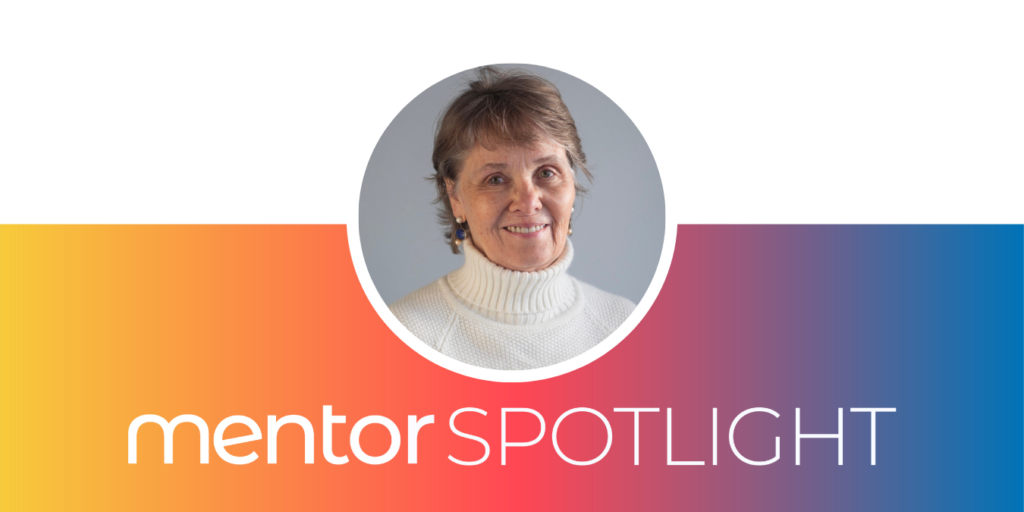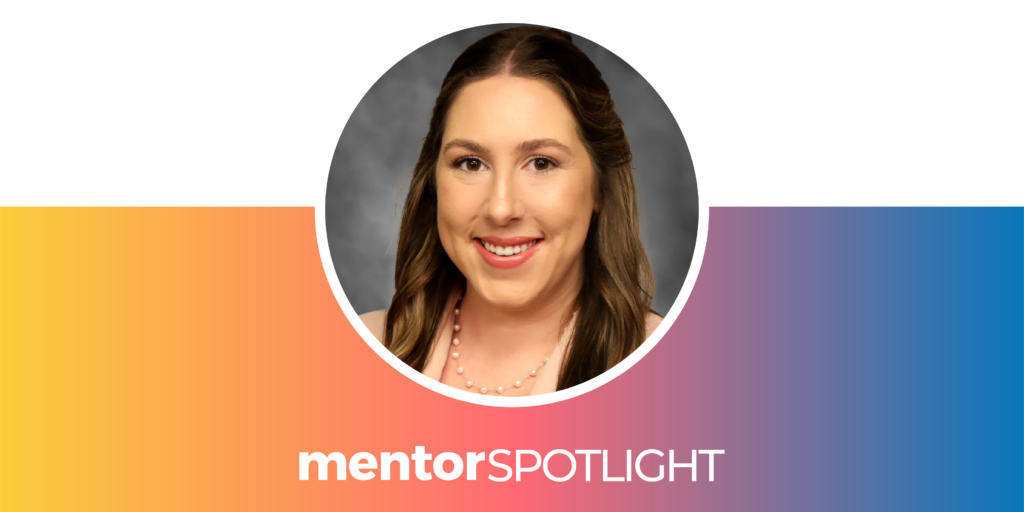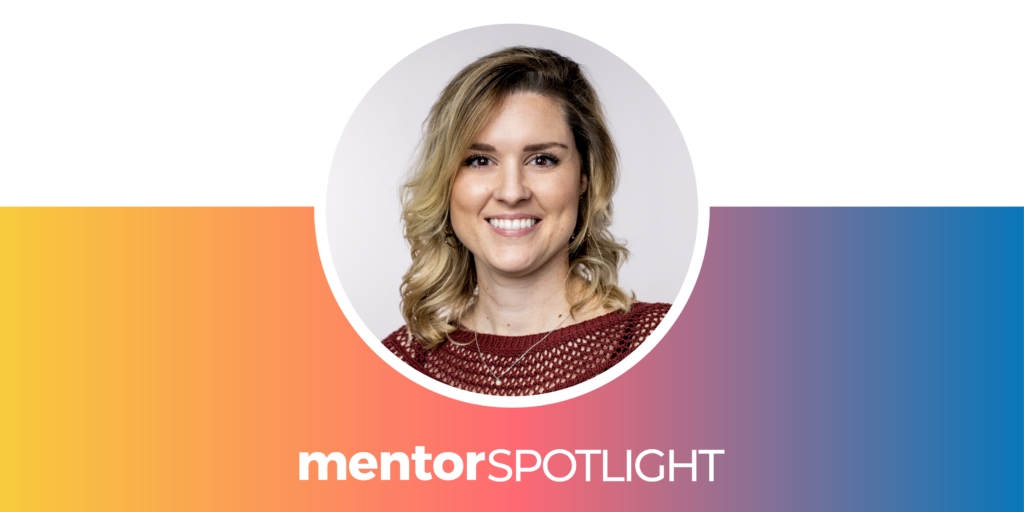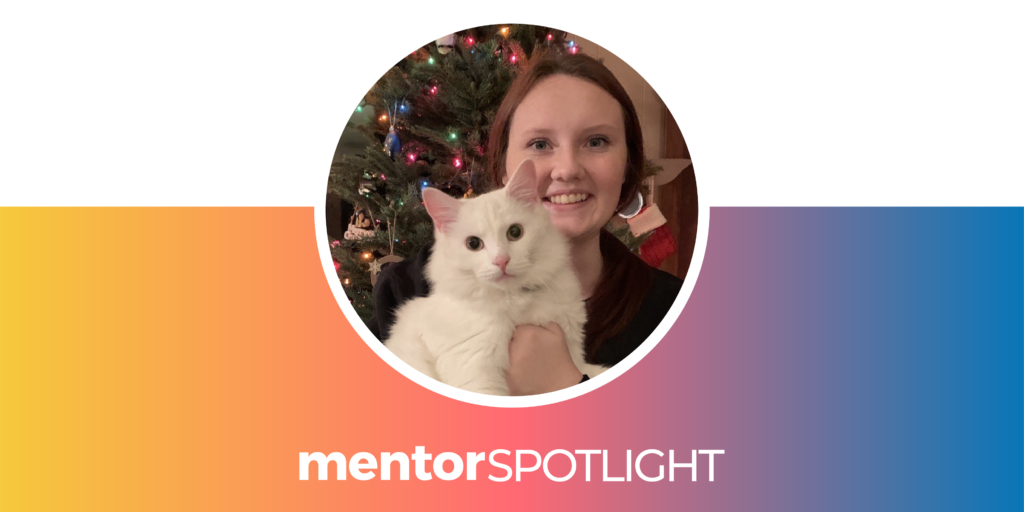In this week’s NCHPAD Spotlight, we caught up with Mindfulness Instructor Cathy Wright. We chatted with Cathy about her career, the path that brought her to Mindfulness (and the MENTOR program), and much more!
How long have you been with NCHPAD?
I’ve been working with MENTOR since its inception: I designed and teach the Mindfulness portion of the program.
Tell us about your background & education. What brought you to NCHPAD?
My relationship with NCHPAD began through the Lakeshore Foundation, when I was a consultant on Lakeshore’s original Strategic Plan years ago. The plan included three pillars: exercise, research, and advocacy. This led to the recruitment of NCHPAD Director Dr. Jim Rimmer. The development of the MENTOR program and a commitment to advocacy led to inviting NCHPAD to locate on Lakeshore’s campus.
I am a litigation attorney and mediator and practiced law for almost 25 years. A constant travel schedule and three children led me to a career change. I was a founder of a consulting company and worked for 15 years consulting with businesses, government, and nonprofits all over the US in the areas of strategic planning, communication, leadership, and crisis management.
During that time, I also engaged in a long process of meditation training, beginning with Shaolin arts like tai chi, qi gong, and martial arts. I participated in a number of meditation trainings that led me to become an Enneagram teacher certified by The Narrative Enneagram, an approach based in meditation. I’ve been fortunate to work with some of world’s most respected Enneagram teachers.
After I sold my business in 2016, I joined the inaugural Mindfulness Meditation Teacher Certification Program taught by Tara Brach and Jack Kornfield. Today, I continue my training through the Diamond Approach.
I’m a military kid and grew up all over the US as well as in Germany and Panamá. From these travels I learned that people are the same everywhere, but culture really matters.
How long have you worked with people with disabilities?
My experience in working with people with disabilities began with consulting on the original Lakeshore Foundation Strategic Plan about 15 years ago. However, my father, an experienced US Army combat infantry officer, sustained a severe TBI leading to multiple issues, including seizures, when I was in elementary school. In those days, no treatment was offered, so I learned early about the daily challenges of living with severe injuries and the costs of not having any support. Working with the MENTOR program has been very healing for me.
What do you do with NCHPAD?
I designed the MENTOR Mindfulness Training program and taught all the classes for several years. When the program grew, I recruited additional teachers with the help of Christy Sharshel and Tara Brach. As a result, we have some of the best and most experienced teachers both in Mindfulness and in working with people with disabilities. I continue to manage the teacher group and, together, we have continued to develop the curriculum.
What talents or expertise do you bring to NCHPAD or MENTOR?
This is a long, rambling answer more about the program than my expertise. In sum, I’d say that we have succeeded in cracking the code of how to reach students who weren’t looking for a Mindfulness class. My observation has been that many Mindfulness trainings are geared either toward people searching for mindfulness training while other programs are oriented toward one specific application such as pain or stress management. We wanted to develop a program that would be accessible to everyone.
When Dr. Rimmer, the leading academic on disability and exercise – and founder of the MENTOR program – approached me about helping to develop the Mindfulness platform for MENTOR, we had many conversations about what the program would accomplish. We talked about the importance of having a structure and an arc for the training protocol, which led to the foundational design being based on The Power of Awareness, on which my teaching certification is based. While based in the combined 100 years’ experience of Tara Brach and Jack Kornfield, it is designed to be secular and instructive for people who want to incorporate the benefits of Mindfulness into their everyday lives.
Most important for our classes, we have been focused on providing participants with an experience of how being mindful can support quality of life by reducing stress, creating more choices, enjoying the opportunities in each moment, and being at peace with reality. MENTOR participants come from a wide range of backgrounds, demographics, educational levels, beliefs, and challenges. Most have no previous experience in mindfulness and do not arrive at MENTOR in search of mindfulness training. Some participants have current or past experience with meditation, yoga, or other forms of mindfulness training but are unaware of how their practice might support them in their current circumstances.
We want all participants to not only learn basic concepts and tools, but also to experience what it is like to be able to apply them moment to moment. The classes also support them to build the tools and mindsets that offer calm, joy, and greater choice about how to respond to whatever circumstances they meet.
I think this is the most important achievement of the MENTOR Mindfulness training: to reach a wide variety of people and allow them to enjoy their experience an hour a week for eight weeks, while beginning to apply some of these tools in a way that supports them where they are, and to do so sustainably.
We are sometimes asked about how we adapted the training for people with disabilities or chronic illness. It is very important that our teachers have some understanding of the lived experience of our participants and what they need to process. All our teachers have this knowledge to some extent, and many have their own lived experience of disability. We try to be inclusive in our language and provide alternatives so the teaching is accessible to everyone.
But I don’t think “adapted” is the right word. Meeting yourself where you are right now is the practice, which requires paying attention to how to adjust the practice for you as you are right now. As teachers in MENTOR Mindfulness, we also see that our participants often have a readiness for mindfulness that others might not, because people who enter MENTOR mindfulness training already are managing new and often difficult circumstances that require them to slow down and think in new ways.
In this introductory class, our teachers are careful to set good boundaries about what we offer and what we do not. We are not there as healthcare providers or therapists. We try to set realistic expectations about what is reasonably achievable in eight classes.
What is your favorite thing about NCHPAD or MENTOR?
Working with – not for but with – our participants on a mutual journey of discovery. I learn something new in every class, and I always say the participants learn most from sharing with each other. An expression of an “Ah Ha!” experience by a class member is a great source of satisfaction, knowing that someone has found a way for their life to become easier and more enjoyable.
Share a success story. Tell us about a time when you really saw your program working in the life of a participant.
There are so many examples, and the MENTOR team has collected feedback over the years that we have been offering classes. Here are some examples:
- A bright and thoughtful young man entered the MENTOR program with a heavy heart, blaming himself for a sports-related injury with lasting effects. In our first class of each session, we emphasize the central importance of “Rule #1: Be Kind to Yourself” and “Rule #2: Remember Rule #1.” This teaching is consistently the strongest feedback we hear about how the MENTOR training has been helpful. Over the next few weeks, he embraced this new understanding and became visibly happier and more engaged in life. By the end of class, he planned to continue his Mindfulness training with the goal of teaching in the program. We’d love to have him.
- A young man with a high school education with a physical injury felt a lot of anger and said he tended to explode when things frustrated him. During this program, the diverse group of participants—including a PhD and an experienced government staffer – became close and supported each other. Following the class sessions about the neuroscience of emotions and thoughts, and how to befriend your inner critic, this young man reported that he was using the tools he learned in class to manage his emotions and finding that he was able to reduce or even avoid outbursts.
- A young mother, newly diagnosed with a chronic illness, reported that over the course of the Mindfulness training, she began feeling calmer and “just stopped” smoking.
- A senior participant diagnosed with a chronic illness and now also diagnosed with a rapid onset of dementia sat through every class. While he never spoke, he was always smiling. His caregiver reported that he really looked forward to the classes, which provided both of them a time of respite.
- A brilliant man with several advanced degrees had a stroke over a year ago and was making slow but steady progress on recovery. In the past, he had a meditation practice, but hadn’t practiced in years. He reported that the MENTOR Mindfulness program had rekindled his awareness of how meditation could support his life after a stroke.
- A physician diagnosed with a chronic illness found she could combine her medical experience with the tools and practices she learned in the MENTOR program. Over the course of the program, she began sharing her knowledge with the class, which both grounded her own practice and inspired the rest of the class.
- In all our MENTOR Mindfulness instruction, we offer participants both permission and methods to adapt the practices to what works for them as they are right now. A paraplegic young woman with limited mobility was surprised to find that using embodied practices gave her a greater sense of connection and ease in her body, offering great peace and relaxation.
What hobbies do you have outside of work?
I am a photographer and printmaker and enjoy a variety of visual arts. I also write poetry and participate in several writing groups. Travel is one of my favorite pastimes, and I’m happy to be able to travel again following the pandemic. We also have lots of flowers in our yard and in our house. I love spending time with my family, including 3 children and their partners, and 3 grandchildren.
What’s your favorite food, favorite thing to cook or favorite recipe?
I love good food! I try to eat a very healthy diet but it has to have room for dessert – and I love anything with blueberries. I spent the pandemic baking sourdough bread for friends and family. My children are better cooks than I am (probably in self-defense!) but I like to bake healthy treats. Here are some favorites:
- Healthy Banana Bread- https://cookieandkate.com/healthy-banana-bread-recipe/
- Olive Oil Pie Crust- https://www.sixcleversisters.com/olive-oil-pie-crust/
- Samin Nosrat’s Granola Recipe- https://www.antonella.cooking/samin-nosrat-olive-oil-and-sea-salt-granola/
What’s your favorite music, movies or tv shows?
I love all kinds of music, although I am not blessed with any kind of musical talent myself. I like to listen to KCRW, BBC Sounds, and iTunes radio for awesome music mixes from all over the world. Jon Baptiste, Leon Bridges, Agnes Obel, Michael Kiwanuka, and Kaleo are some current favorites. And always Yo-Yo Ma.
I stay riveted to British and Scandinavian mystery series. Continuing a theme, when I can’t think of anything else to watch, I default to Tinker, Tailor, Soldier, Spy. If my daughter walks in the room when I’m watching, she sighs “Not again!”
What’s the last book you read? How was it?
I’m finishing up The Myth of Normal by Gabor Maté, which is an amazing rethinking of the intersection of health and culture. For escape and relaxation, I read British and Scandinavian mysteries. Among my favorite writers in this genre are Hennig Mankell, John Le Carré, Tana French, Peter Robinson, Camilla Lackberg, and Elizabeth George, among others. In the US, I am a big fan of Tony Hillerman whose novels were set on the Navajo and Hopi reservations. The really great writers cover themes of culture, political landscape, and psychology.
Who or what inspires you?
I’ve been fortunate to have extraordinary teachers and to be acquainted with remarkable teachers. The Mindfulness Teacher Training Certification Program offered by Tara Brach and Jack Kornfield has been very important to this stage of my life. Enneagram teachers Helen Palmer and Sandra Maitri have been great inspirations. My early teachers John Fey and Charlie Fechter started me on my path.
My first job out of law school was a law clerk to Judge Frank M. Johnson, Jr. He modeled integrity, commitment, and courage in ways I can only aspire to.
What’s your favorite quote?
“Presence does all the work.” – Hameed Ali (A.H. Almaas)
If you could switch careers for a day, what would you choose?
I aspire to be a painter. I also think the world needs many more good therapists.
What’s one thing (not related to your job) that you could teach someone else how to do?
Bake really good cornbread and biscuits.




